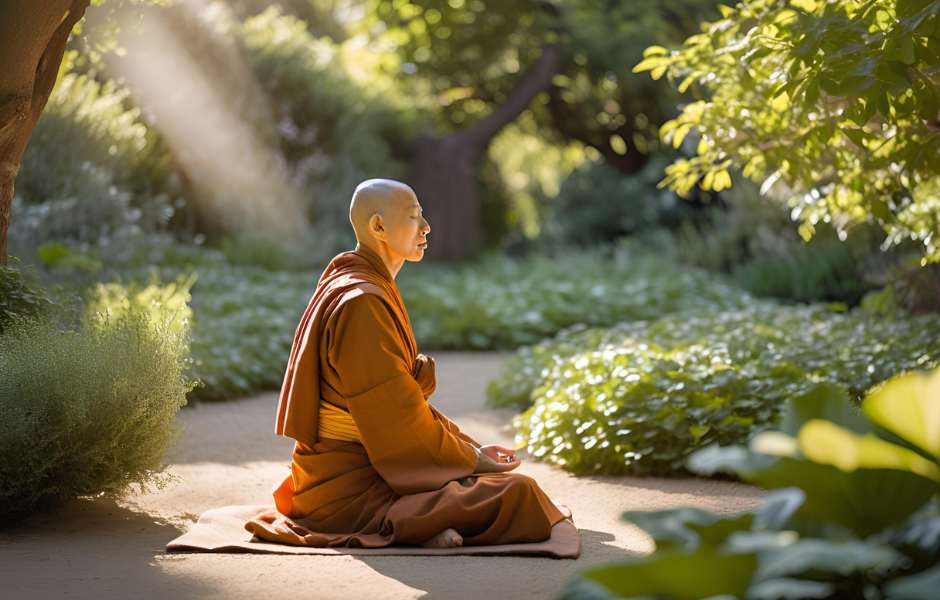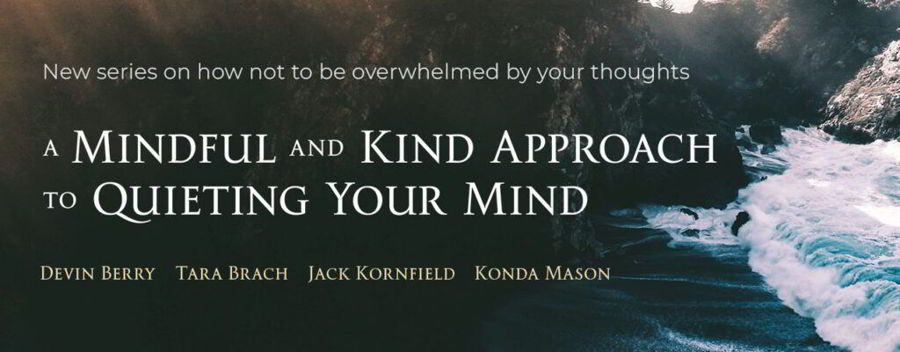
Explore these modern-day Buddhist practices to build resilience and navigate workplace challenges with mindfulness, compassion, and adaptability.
In a fast-paced and ever-changing work environment, resilience has become critical for personal and professional success. Employees and leaders are often confronted with stress, uncertainty, and constant change.
But what if there was a way to approach these challenges with greater composure, clarity, and strength? Buddhist practices, with their deep philosophical foundation, offer valuable tools for cultivating resilience at work.
By integrating the principles of mindfulness, impermanence, and interconnectedness, organizations can foster a more balanced, adaptable, and resilient workforce.
Contents
8 Modern-Day Buddhist Practices to Navigate Workplace Challenges
This list includes different Buddhist practices that can be applied to enhance resilience in the modern workplace, complemented by insights from famous Buddhist teachers.
#1. Mindfulness: Staying Present Amidst Challenges
In Buddhist teachings, mindfulness is a core practice that encourages individuals to remain fully present in the moment. In the workplace, mindfulness can help employees manage stress and avoid becoming overwhelmed by competing demands.
When faced with tight deadlines or high-pressure situations, individuals can use mindfulness techniques to center themselves, focus on the task, and reduce anxiety about the future.
Training the mind to stay present can help employees enhance performance, make thoughtful decisions, and maintain emotional balance. As renowned Vietnamese Zen Buddhist monk, Thich Nhat Hanh, taught, “The present moment is the only moment available to us, and it is the door to all moments.”
This reminder underscores the importance of focusing on the here and now, which is especially valuable when navigating workplace challenges. For example, consider an employee juggling multiple projects with overlapping deadlines.
Instead of spiraling into stress and self-doubt, they can pause for a few minutes to practice deep breathing or simply refocus their attention on the task they are currently working on.
By staying grounded, they improve their emotional resilience, productivity, and effectiveness in high-pressure situations.
“The present moment is the only moment available to us, and it is the door to all moments.” ~ Thich Nhat Hanh
#2. Understanding Impermanence: Embracing Change
One of the fundamental beliefs in Buddhist philosophy is the concept of impermanence, or anicca, which asserts that all things are in a constant state of change. This belief can be a powerful tool for building resilience in the workplace.
In a world where businesses frequently face shifting market conditions, organizational restructuring, and evolving technologies, accepting impermanence allows individuals to remain adaptable in the face of uncertainty.
The Dalai Lama encapsulates this idea: “The way to overcome negative thoughts and destructive emotions is to develop opposing, positive emotions that are more powerful and wholesome.”
Embracing impermanence allows individuals to adapt and move forward, rather than being trapped in resistance to change. Take, for instance, a company undergoing a major restructuring.
Employees might initially feel anxious about their futures within the organization. However, by embracing the Buddhist understanding that change is inevitable, they can shift their perspective.
Instead of resisting change, they can view it as an opportunity for growth and learning. This mindset enables individuals to better navigate transitions and emerge more resilient, equipped with new skills and a broader understanding of their roles within the company.
“The way to overcome negative thoughts and destructive emotions is to develop opposing, positive emotions that are more powerful and more wholesome.” ~ The Dalai Lama
#3. Cultivating Compassion: Reducing Self-Criticism
Compassion, another central tenet of Buddhism, is about fostering kindness and understanding, both toward others and oneself. In a workplace environment, compassion can significantly reduce self-criticism, a common barrier to resilience.
When employees encounter setbacks or make mistakes, they may be tempted to internalize failure, leading to diminished self-confidence and increased stress.
Buddhist practices such as loving-kindness meditation (metta) help individuals develop compassion toward themselves and others, which promotes emotional well-being and resilience.
As Gautama Buddha said, “You yourself, as much as anybody in the entire universe, deserve your love and affection.” This teaching encourages individuals to be kind to themselves, particularly in times of difficulty, so that they can extend the same compassion to others.
Consider a manager addressing a performance issue with an employee. Instead of approaching the conversation with harsh criticism, the manager can adopt a compassionate approach, recognizing that mistakes are part of the learning process.
By offering constructive feedback and support, rather than focusing on blame, the manager helps the employee maintain their self-esteem and feel motivated to improve.
This compassionate approach creates a work culture where employees feel safe to learn from their mistakes, which ultimately strengthens their resilience.
“You yourself, as much as anybody in the entire universe, deserve your love and affection.” ~ Gautama Buddha
#4. Non-Attachment: Letting Go of Expectations
Buddhism teaches the principle of non-attachment, encouraging individuals to release their attachment to specific outcomes, possessions, or desires. In the workplace, attachment to rigid expectations can lead to frustration and stress when things don’t go as planned.
By practicing non-attachment, employees and leaders can maintain flexibility and stay open to alternative solutions when faced with unexpected challenges.
Gautama Buddha famously stated, “You only lose what you cling to.” This profound insight teaches the value of letting go of expectations and accepting life’s ebb and flow without resistance.
For example, consider a project manager whose team has been working for months on a product launch, only for unforeseen delays to disrupt the timeline.
Instead of becoming fixated on the original schedule and feeling disheartened by the delay, the manager can practice non-attachment by accepting that things will not always go according to plan.
They can focus on the next best steps, adapting the project’s course of action to the current circumstances. This approach fosters resilience by helping individuals stay adaptable and solution-oriented rather than bogged down by frustration.
“You only lose what you cling to.” ~ Gautama Buddha
#5. Meditation: Strengthening Mental Clarity
Meditation, a cornerstone of Buddhist practice, is an effective method for calming the mind and improving focus. In high-pressure work environments, taking a moment for meditation can help employees clear mental clutter, reduce stress, and gain mental clarity.
Meditation cultivates the ability to observe thoughts and emotions without becoming overwhelmed, which is particularly valuable in stressful situations.
As the great Tibetan Lama, Tsoknyi Rinpoche, teaches, “Meditation is not about trying to throw ourselves away and become something better, it’s about befriending who we are.” This gentle approach to self-reflection helps calm the mind and navigate workplace stress.
Imagine a team preparing for a critical presentation to a potential client. Instead of rushing into the meeting with a cluttered mind, the team takes five minutes to meditate together, focusing on their breath and centering their thoughts.
This brief moment of calm helps them approach the presentation with greater focus, composure, and clarity, ultimately increasing their chances of success.
“Meditation is not about trying to throw ourselves away and become something better, it’s about befriending who we are.” ~ Tsoknyi Rinpoche
#6. Embracing the Four Noble Truths: Finding Purpose in Suffering
The Four Noble Truths, foundational teachings in Buddhism, address the nature of suffering and provide a path toward its cessation. In the workplace, understanding these truths can help employees reframe challenges as opportunities for growth and improvement.
Rather than viewing difficult situations as obstacles, individuals can see them as part of the natural process of life that offers valuable lessons. The Dalai Lama often emphasizes that “Suffering is not enough. We must also learn to reduce it. We must also practice wisdom, love, and compassion.”
By embracing suffering as an opportunity for personal growth, you can develop resilience and turn setbacks into stepping stones. For example, during a challenging financial quarter, a team might experience a decline in revenue or performance.
Instead of becoming discouraged, your team can apply the Buddhist teachings of the Four Noble Truths by acknowledging that challenges and suffering are inevitable and surmountable.
They can focus on problem-solving and innovation, drawing strength from the knowledge that difficult times provide an opportunity for learning and growth.
“Suffering is not enough. We must also learn to reduce it. We must also practice wisdom, love, and compassion.” ~ The Dalai Lama
#7. Interconnectedness: Strength in Unity
Buddhism emphasizes the interconnectedness of all beings, underscoring the importance of community and cooperation. In the workplace, understanding interconnectedness fosters a sense of shared purpose, helping individuals recognize that their actions impact others.
This perspective promotes collaboration, empathy, and mutual support, which strengthens the collective resilience of the team. Thich Nhat Hanh beautifully captures this principle: “We are here to awaken from our illusion of separateness.”
When people embrace interconnectedness, they understand that resilience is built not in isolation but through collaboration and mutual support.
For instance, during a crisis such as a company-wide emergency or sudden market shift, employees who understand their interconnectedness are more likely to work together and offer support.
A leader might encourage the team to share resources, skills, and ideas, reinforcing the notion that resilience is not built in isolation but through collaboration and unity.
“We are here to awaken from our illusion of separateness.” ~ Thich Nhat Hanh
#8. Acceptance & Equanimity: Maintaining Balance in Turmoil
Equanimity, the practice of maintaining calm and mental balance regardless of external circumstances, is another powerful Buddhist tool for building resilience. In the workplace, equanimity allows individuals to handle challenges with composure and objectivity.
By accepting that both positive and negative experiences are part of life, employees can avoid emotional extremes and maintain steady progress even in turbulent times.
Gautama Buddha teaches, “When you are content with yourself, you will be content with the world.”
Cultivating equanimity helps us stay calm, no matter the chaos that surrounds us. A prime example is a senior leader faced with a sudden crisis, such as a public relations issue or a major client dispute.
Instead of reacting impulsively, a leader can practice equanimity by accepting the situation without panic. They calmly assess the issue, communicate with transparency, and guide the team through the resolution process with a sense of stability.
This approach helps manage the immediate crisis and fosters a resilient, calm atmosphere within the organization.
“When you are content with yourself, you will be content with the world.” Gautama Buddha
Buddhist practices offer a wealth of wisdom for cultivating resilience at work. By embracing mindfulness, impermanence, compassion, and other daily Buddhist practices and beliefs, employees and leaders can better navigate the stresses and uncertainties of modern work life.
Free Courses to Learn Daily Buddhist Practices
Discover how to learn daily Buddhist practices that cultivate mindfulness, compassion, and resilience to enhance personal growth and navigate life’s challenges.
#1. Free 4-Part Video Series: Power of Awareness
This free series includes four videos from Devin Berry, Tara Brach, Jack Kornfield, and Konda Mason, to bring you closer to recognizing your trained thought patterns as often counterproductive and how to rise above them.
#2. Free Video with Jon Kabat-Zinn: Opening to Our Lives
Explore the transformative power of mindfulness and discover how mindfulness meditation can help you embrace your innate wholeness, unlock creativity, and contribute to healing the world while strengthening resilience and ethical integrity.
#3. Free Pema Chödrön Teachings & eBooks
These Pema Chӧdrӧn teachings include ancient spiritual practices and ways to meditate to liberate your mind from habitual patterns and start living beautifully.
#4. Eckhart Tolle’s Doorways into Presence Program
One of the most important ways to accelerate your own evolution is to commit to regular Presence practices. Integrate the realization of Presence into every part of your daily life with Eckhart Tolle’s Doorways into Presence program.
#5. Free Video: How Presence Transforms Your Relationships
In this free video teaching, beloved Zen master, Thich Nhat Hanh, shares two stories showing what happens when we let distractions isolate us from those we care about — and how our simple attention can change everything.
#6. Free Mindfulness Workshops for Mindful Living
Cultivate mindful living with free mindfulness workshops, mindfulness courses, mindfulness classes, and mindfulness programs to help you learn mindfulness skills.
#7. Free Events for Mission-Driven Entrepreneurs
Discover how to align your business with your deeper purpose and use your work as a force for good at these free events for mission-driven leaders. Learn about The Inner MBA®, a certification program designed to help entrepreneurs and executives master conscious leadership and achieve exceptional, meaningful results.
© 2024, Priya Florence Shah. All rights reserved.
Priya Florence Shah is a bestselling author and an award-winning blogger. Check out her book on emotional self-care for women. Priya writes short stories and poetry and chills with her two-legged and four-legged kids in her spare time.
Discover more from Business & Branding Tips
Subscribe to get the latest posts sent to your email.











